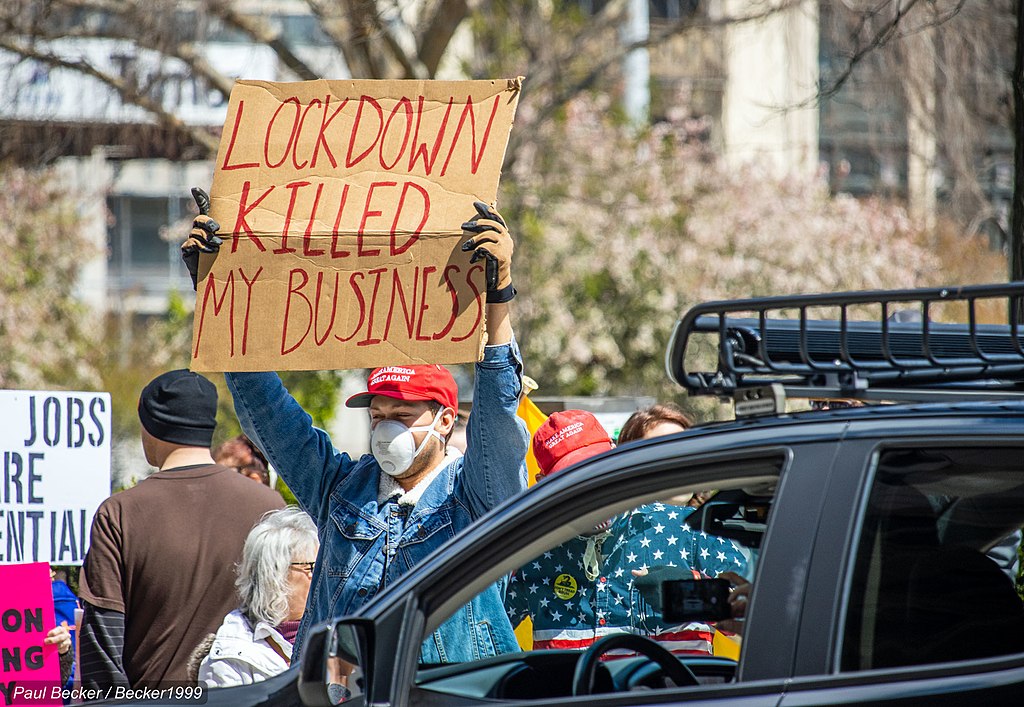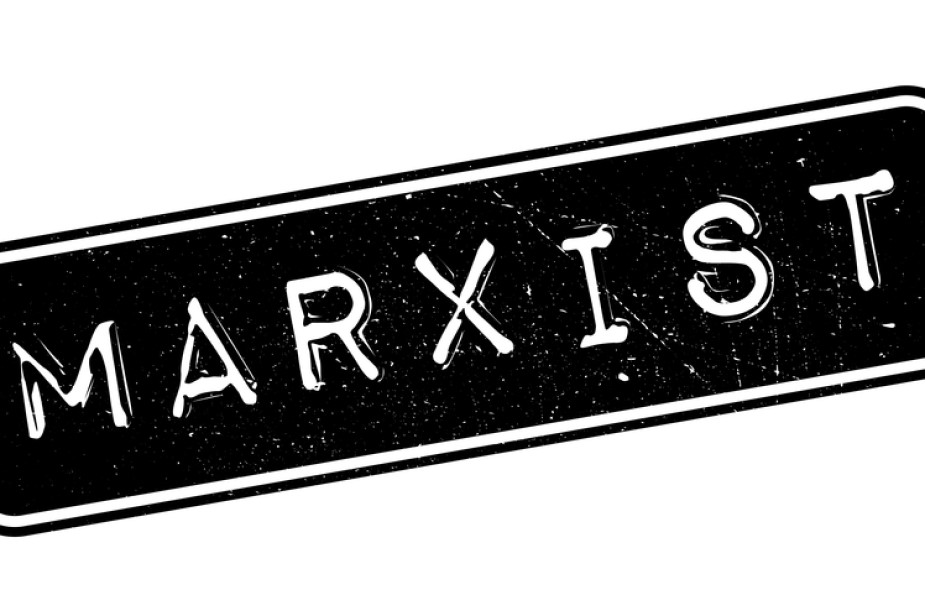Americans are now more polarized than ever. Too often political discourse devolves into heated disagreements in which both parties learn little about the other side. Quite reasonably, nearly half of Americans have stopped talking to someone about politics, and many have unfriended people on social media or become estranged from their family.
As an ethicist, I value critical thinking and sound reasoning through arguments. Yet I’ve learned the most about productive debate from the science of romantic relationships, which emphasize civil discourse and mutual understanding. Perhaps these tools too can help repair a fractured republic.
Two of the leading researchers are John and Julie Gottman, whose Love Lab for decades has studied thousands of conversations among couples. They are able to predict with over 80% accuracy whether a marriage will result in divorce, just based on observing a brief interaction between spouses. And they’ve identified four ways in which conversations among partners take a dark turn.
Counteract Contempt
The single greatest predictor of divorce is contempt. The Gottmans look for expressions of disrespect, disgust, or ridicule toward one’s partner, which can be subtly expressed through sneering, sarcasm, eye rolling, and mocking. Humans are deeply social creatures adept at sniffing this out, even when the contempt isn’t overt.
Classic contempt is increasingly common in political discourse. Politicians belittle their opponents, calling them “deplorable” or “crooked.” Disrespect is often communicated much more subtly when people debate moral and political issues. Consider the infamous interview Jordan Peterson did with Cathy Newman on Britain’s Channel 4 News in 2018. The uncomfortable encounter is the epitome of a combative conversation, as Peterson and Newman each engage in repeated rounds of offense and defense while exchanging scoffs and sneers.
Now, when individuals or institutions attack or fail you, contempt can seem completely warranted. Politicians often win votes by sharing contempt for the status quo — whether it’s climate inaction or wokeness. But those politicians must work with the opposing party to make lasting change. The same goes for ordinary citizens. We must live with our opponents, but we do have a choice: either lean into the disdain or understand one another with humility. (Indeed, we can see Peterson engaging in a much more productive conversation in less combative contexts.)
The antidote to contempt is to build a culture of appreciation, to remind yourself and your romantic partner of what you love about them. Rather than fume about how your partner is frequently late, realize how it pales in comparison to their sense of humor and dedication to your children. Focus on the positives, not the negatives.
The same lesson can be applied to political conversations. You could dwell on how your father is transphobic and cares more about guns than women’s bodies. And he might dwell on how his daughter has lost all respect for authority, family tradition, and the Second Amendment. But what good will that do? The contempt and combative orientation won’t convince anyone to change their mind and it might weaken the relationship — assuming it’s something worth maintaining.
Keep Criticism to a Minimum
Contempt is just one of what the Gottmans dub the “Four Horsemen of the Apocalypse,” although I like to think of them as conversation poisons that contaminate discussions. Another conversation poison is criticism, which involves attacking one’s partner. You might say “You’re always running late” or “You keep interrupting me.”
Criticism isn’t as toxic as contempt, unless it’s frequent and persistent. The Gottman antidote is to more often use “I” statements that facilitate gentle start-ups to the conversation that express one’s own concerns, rather than criticism of the other. For example: “I get really anxious and irritable when we show up late to events” or “I don’t feel like my opinion is valued if I’m regularly interrupted.”
Gentle start-ups also improve political conversations. Disagreeing with a person’s political perspective, even critiquing it, can be productive, but “You can’t seriously want to defund the police” promotes moral combat and makes opponents defensive. Instead, focus on oneself: “I’m worried that defunding the police will overall lead to more crime and violence, especially in the most vulnerable communities.” Of course, phrasing a concern in terms of one’s own thoughts and emotions needn’t happen only at the beginning of a conversation. It’s just as important later on, when blood starts to boil and remarks turn to you and your ilk.
Attack Defensiveness
If the conversation does get combative, another common poison is defensiveness. If your partner says “Ugh, we’re always late,” you’re likely to reply “Well I’m trying to hurry, but I’ve been slammed with work and haven’t had time to catch up on my endless to-do list.” It’s natural to get defensive when another person attacks, but the Gottmans would say that it contributes to the conversation being combative. And being in fight mode makes it virtually impossible to see the other person’s perspective, to be charitable and gain mutual understanding.
Most of us want so badly to be heard and understood that we will remain on defense until that goal is achieved. But that maintains a combative orientation by focusing on how one’s opponent ought to change. Rather than fuel the combative fire, the Gottman antidote is to take responsibility. The criticized partner might reply instead, “I know, I’m sorry. How about we talk sometime about how to divide up the household chores better so I’m not always running behind?” From a place of security, flaws are admitted, even if that’s not the end of the story.
Now imagine you’re debating abortion. Your interlocutor proclaims, “Pro-lifers only want to control women’s bodies, since they don’t support funding programs that help poor children after they’re born.” It’s tempting to defend one’s moral integrity from attack, but taking responsibility would help take the conversation in a better direction. Imagine replying “It’s true that conservatives focus more political attention on the unborn. Infant mortality and poverty concern me too. A friend of mine got laid off after having her first child, and food stamps saved them. I’m just concerned about the unborn children too.”
Taking responsibility in politics is different from romantic relationships. Most of us can’t take responsibility for signing legislation or handing down a ruling. But we can acknowledge points on the other side and faults in our own tribe. Paradoxically, letting down one’s guard and just sharing a personal story is an effective tactic for persuasion.
Flee Emotional Flooding
When heated conversations put the sympathetic nervous system into overdrive, the alternative to fighting back is flight. A partner might shut down, stop talking, walk off, or avoid the topic in future conversations. The Gottmans call this stonewalling, and its source is emotional “flooding.”
The antidote is physiological self-soothing. Sometimes that can be achieved by taking a break, but not forever and not in a combative way. Storming off is combative, as opposed to “I’m already hangry and now getting worked up. Can we come back to this tomorrow morning, after my big meeting?” The goal is to engage the parasympathetic nervous system which is designed to help us recharge or “rest and digest.” Otherwise, you simply won’t truly listen to one another.
When talking politics, taking a break can be wise too. In some cases, it makes most sense to avoid politics to spare a valued relationship. But we can take this too far by avoiding political dialogue generally, even cutting ties with friends and family members. These forms of political stonewalling are methods of ending relationships, not preserving them, and closing others off certainly won’t change their minds.
Of course, just as some relationships shouldn’t be saved, some political opponents are toxic. Maybe there’s no need to retain a relationship with that high school classmate who always trolls liberals and posts propaganda. The problem is only when avoiding political opponents fuels a tribalistic “us vs. them” mindset that closes off productive conversation.
Anger’s Allowed
The prescription to self-soothe can sound as though one must remain Stoic, free from negative emotions. Should we follow the philosopher Martha Nussbaum who has drawn on Nelson Mandela as an exemplar of reconciliation to argue that anger is poisonous in politics and relationships?
Not necessarily. As the Gottmans are quick to point out, frustration and anger can be healthy in relationships. Not all negative emotions are noxious like contempt or the excessive fear and anxiety characteristic of fight-or-flight responses. The Stoics too recognized that negative emotions aren’t categorically corrupt. Their prescription, like the Gottmans’s, is to identify and respond appropriately to those emotions, whether positive or negative.
Indeed, sometimes anger is productive. Myisha Cherry contends that the emotion is essential to combating racism and other forms of oppression. Try to imagine the activism of Malcolm X or Audre Lorde sapped of rage. Whenever anger toward injustice is apt, it may be appropriate to feel, as Amia Srinivasan has argued. Ultimately, venting and channeling one’s anger can be therapeutic, a way to recover from physiological flooding.
The problem is only when anger morphs into disrespect, when grievances become contemptuous. Martin Luther King’s famous letter from a Birmingham jail is instructive. He clearly expressed frustration with fellow religious leaders and the “white moderates” who criticized his peaceful forms of direct action, but he didn’t become physiologically flooded or stonewall. He was willing to engage respectfully with his opponents while engaging in civil disobedience.
Calls for calm, “rational” discourse can be problematic when used as a weapon for silencing the oppressed, whether in politics or relationships. Alex Zamalin has recently argued in Against Civility that fighting against racism requires forms of resistance that disrupt society. That’s true as far as it goes, but protests, marches, boycotts and other forms of activism are not in tension with civility. The peaceful marches and sit-ins led by Martin Luther King are paradigms of civil disobedience. Other examples include activists who feed water to pigs being transported in hot, overcrowded trailers. Direct action, even disruption of the status quo, can be done out of concern for the oppressed without contempt for one’s opponents. As Ancient Chinese philosophers recognized, civility is necessary for productive engagement with others.
Why It Works
The Gottman approach works because it allows people to be heard. Humans are only receptive to another person’s ideas when there is mutual trust and respect. Show someone disrespect, or come off as an aggressive outsider, and you’ll be shut out. That goes for the salesman peddling his wares or the activist selling her argument for animal rights. As philosophers have long noticed as well, mutual respect is particularly crucial for intellectual opponents to learn from one another.
Modern neuroscience provides additional support for the Gottman approach. The brain only exhibits lasting changes in light of new information if the learner finds the information relevant or significant. Just as a child won’t learn how to throw a football if she despises the game, you won’t appreciate what your opponents say if you hate them — even when there is something valuable to learn.
Consider Daryl Davis, a black jazz musician, who seems to have mastered the Gottman approach and deployed it with the seemingly unreachable: members of the KKK. Davis famously convinced Roger Kelly and others to leave the Klan by befriending them. Kelly told CNN, “We don’t agree with everything, but at least [Daryl] respects me to sit down and listen to me, and I respect him to sit down and listen to him.”
America’s political tribes are not only polarized but fractured. There is little trust or respect — and much contempt for the other side. The relationship is broken. Sometimes ending a dysfunctional relationship is for the best. However, as Gottman and Silver write of romantic couples, it makes sense to repair if at all possible, for “the death of love is a tragedy.”







